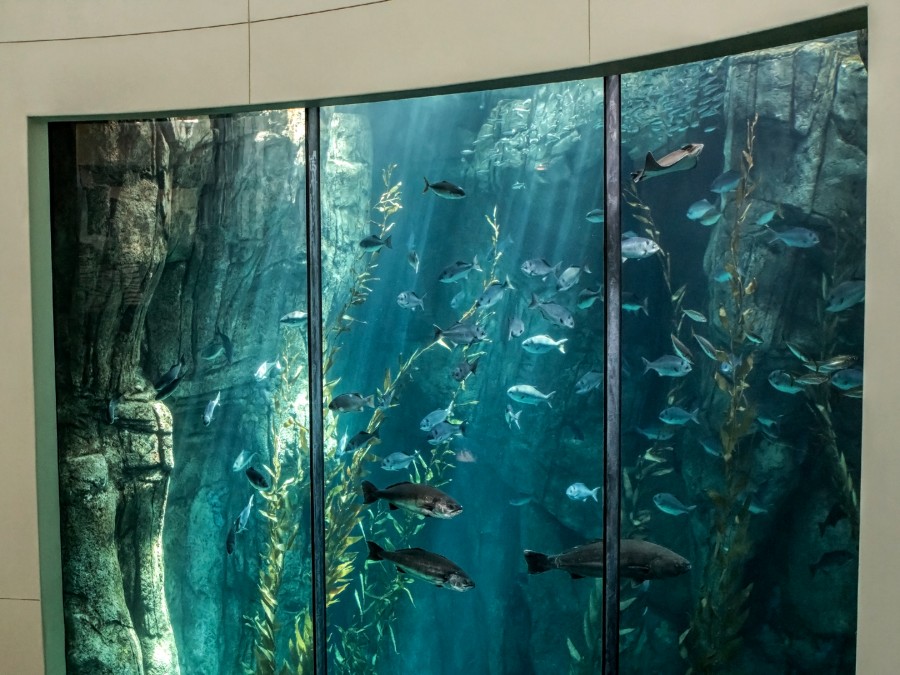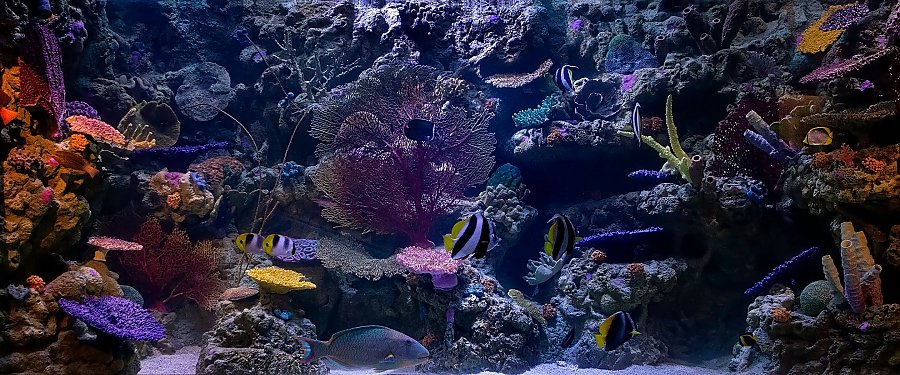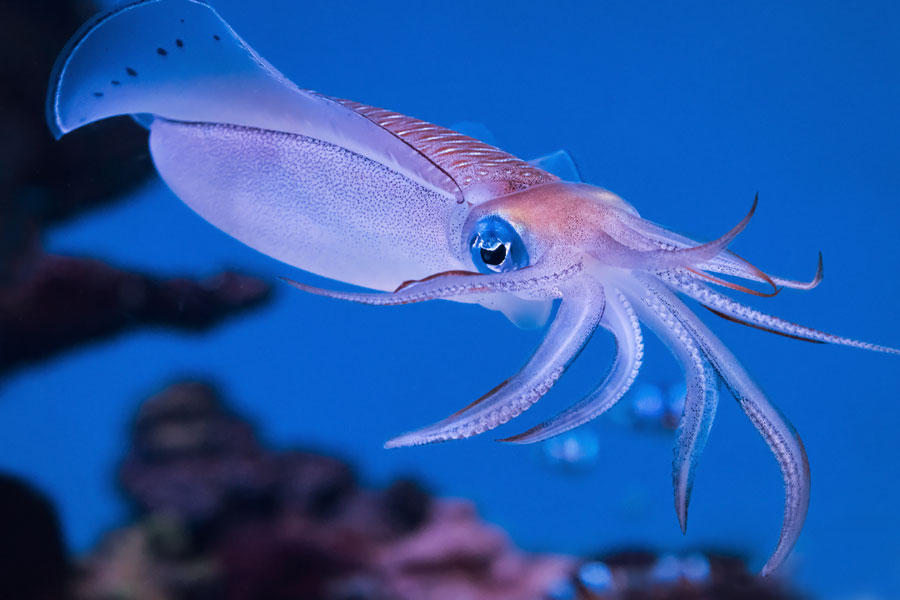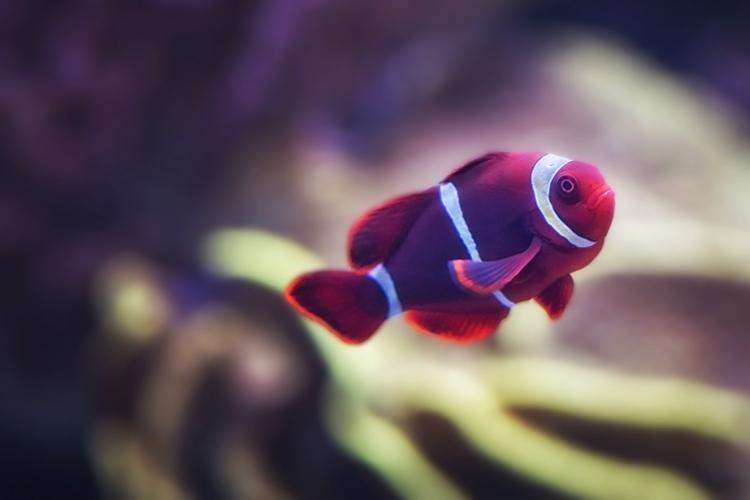Reservations & Info | (562) 590-3100, ext. 0
The following virtual programs offer opportunities to connect your students to the ocean by exploring local and global ecosystems, conservation efforts, and squid dissections.

Credit: Robin Riggs / Aquarium of the Pacific
Are marine animals the only ones who depend on the ocean for survival?
From a major supplier of oxygen, to a steady food source, to regulating weather patterns, the ocean’s reach is far and wide. Further, the impact that humans have on the ocean can be equally far reaching. In this interactive and discussion based program, learners will explore this complex relationship between humans and the ocean, thinking critically about the connections we have with the ocean.

Credit: Robin Riggs / Aquarium of the Pacific
Coral reefs are some of the most diverse habitats in the world, but they are also some of the most threatened.
An incredible array of fish, sharks, and invertebrates can be found living in these underwater cities. Using live webcam footage of the Aquarium’s tropical exhibits to take a closer look at the unique animals living in these habitats, students will be able to explore the biodiversity of coral reefs and the ways that animals rely on coral for survival. Students will also think critically about current threats, and possible solutions, while learning about conservation efforts happening around the world.

Credit: Robin Riggs / Aquarium of the Pacific
How does a squid swim? Why does a squid ink?
The answer to these and many more questions can be found with a closer look inside the squid. This program will allow your students to closely explore squid anatomy. Your students will discover the ins and outs of these interesting ocean animals in this hands-on dissection.

Credit: Robin Riggs / Aquarium of the Pacific
Learn about some of the most interesting animals in our collection while virtually touring our Tropical Pacific, Northern Pacific, and Southern California & Baja exhibits with live camera views.
Programs are tailored to be grade specific and include interactive media, games, and time to ask questions. General themes include an introduction to the different habitats of the Pacific Ocean, animal diversity, and adaptations.